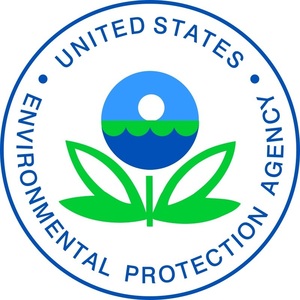EPA proposes to update regs for PIPs to increase ag productivity

September 1, 2020
BY Erin Voegele
The U.S. EPA on Sept. 1 released a proposed rule that would allow plant-incorporated protectants (PIPs) created through biotechnology to be exempt from existing regulations if they meet certain criteria. The EPA said the change would increase agricultural productivity.
PIPs are pesticidal substances produced by plants and the genetic material necessary for the plant to produce the pesticidal substance.
The rulemaking proposes to allow exemptions under the Federal Insecticide, Fungicide and Rodenticide Act and the Federal Food, Drug and Cosmetic Act for certain PIPs created through biotechnology.
Advertisement
Under current regulations, exemptions are only allowed for PIPs created through conventional breeding. The proposed rule, however, would allow exemptions for PIPs created through biotechnology so long as they pose no greater risk than PIPs that meet EPA safety requirements and could have been created through conventional breeding. The EPA said it has preliminarily determined that these substances meeting the exemption criteria have no risks of concern to humans or the environment.
Under the proposed exemption, EPA would require developers of PIPs to submit either a self-determination letter or request for EPA confirmation that their PIP meets the criteria for exemption. A developer could also submit both.
“Agricultural biotechnology has been and will continue to be an essential tool in helping America’s farmers and ranchers feed, fuel, and clothe the world,” said U.S. Secretary of Agriculture Sonny Perdue. “From producers to consumers, all Americans deserve a government that delivers science-based, common-sense regulations that foster innovation, conserve resources, and protect public health—especially when it comes to the food supply. President Trump is committed to harmonizing our regulatory framework for agricultural biotechnology in order to equip our farmers with the tools they need to produce the world’s safest, most abundant, and most affordable food supply.”
The Biotechnology Innovation Organization said the proposed rule recognizes the importance of innovation. “BIO strongly believes these modernized regulatory approaches must be science-based and provide meaningful transparency to consumers so we can establish a system that drives innovation over the long term,” said Clint Nesbitt, BIO’s senior director of science and regulatory affairs for food and agriculture.
Advertisement
“While we are still reviewing the proposal, BIO applauds the administration for its continuing efforts to modernize the regulatory framework for agricultural biotechnology products consistent with the Executive Order released last year,” Nesbitt continued. “An efficient, risk-based regulatory system fosters innovation and paves the way for global solutions such as crops that require fewer chemical inputs and tolerate extreme weather.”
According to BIO, the proposed rule represents an approach that started with development of the National Bioeconomy Blueprint in 2012. In the eight years since, both the Obama and Trump administrations have initiated regulatory improvements to maintain oversight while recognizing the economic, environmental, and societal benefits of biotechnology, the group noted.
“BIO will be submitting comments and looks forward to engaging with the agency as it develops a final rule,” Nesbitt said. “We are also continuing our work with stakeholder partners to make sure that any regulatory reform is accompanied by tangible transparency measures that bolster public confidence.”
A 60-day comment period on the proposed rule will open following publication in the Federal Register. Comments can be filed online under Docket ID EPAHQ-OPP-2019-0508 on www.Regulations.gov. A full copy of the proposed rule can be downloaded from the EPA website.
Related Stories
In a rapidly evolving energy landscape, the 41st International Fuel Ethanol Workshop & Expo will return June 9–11 to the CHI Health Center in Omaha, Nebraska. The event is recognized as the largest and longest-running ethanol conference in the world.
The U.S. EPA on April 11 reported that 1.82 billion RINs were generated under the RFS in March, down from 1.93 billion generated during the same month of 2024. Approximately 5.34 billion RINs were generated during the first quarter of 2025.
The U.S. EPA on April 17 published updated SRE data showing that five new SRE petitions have been filed under the RFS during the past month. According to the agency, 161 SRE petitions are currently pending,
CoBank latest quarterly research report highlights current challenges facing the biobased diesel industry. The report cites policy uncertainty and trade disruptions due to tariff disputes as factors impacting biofuel producers.
The U.S. EIA on April 15 released its Annual Energy Outlook 2025, which includes energy trend projections through 2050. The U.S. DOE, however, is cautioning that the forecasts do not reflect the Trump administration’s energy policy changes.
Upcoming Events










